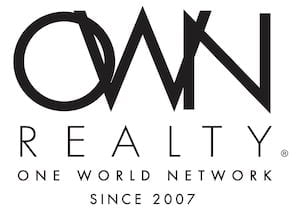1031 Exchange in Indiana
- Home
- 1031 Exchange in Indiana
Considering A Tax Deferred 1031 Exchange in Indiana? We are here to help!
Embarking on a 1031 exchange journey in Indiana introduces investors to a distinctive landscape of real estate opportunities and challenges. A 1031 exchange, also recognized as a tax-deferred exchange, outlines a strategic avenue for selling a qualified property and subsequently acquiring another within a specified timeframe.
The process diverges from a typical sale, treating the entire transaction as an exchange rather than a straightforward sale, granting investors the coveted advantage of deferred gain treatment. Furthermore, Indiana’s real estate market boasts a variety of property types, ranging from residential to commercial and industrial.
Each category presents distinct opportunities and potential challenges for investors engaging in a 1031 exchange. Residential properties may appeal to those seeking stable, long-term investments, while commercial and industrial options could align with investors targeting higher returns through business-oriented ventures. Investors considering a 1031 exchange in Indiana should also take into account the state’s regulatory environment and tax landscape.
Understanding the local tax implications, both at the state and federal levels, is crucial for making informed decisions during the exchange process. Consulting with tax professionals familiar with Indiana’s tax code ensures that investors navigate potential tax liabilities effectively.
When delving into a 1031 exchange in Indiana, it’s essential to recognize that the state’s diverse geography and economic composition contribute to a wide array of real estate investment opportunities.
Urban centers like Indianapolis, with its robust economy and growing population, may present prospects for commercial ventures or residential investments. On the other hand, smaller towns or suburban areas may offer unique advantages, such as potential growth areas or niche markets.

Indiana, with its diverse real estate market, offers a dynamic backdrop for investors engaged in the 1031 exchange process. As the state experiences economic growth and development, particularly in urban centers like Indianapolis, investors must stay attuned to evolving trends.
The capital city, known for its thriving economy and cultural amenities, presents an array of opportunities for those seeking “like-kind” replacement properties. As Indiana continues to attract businesses and residents, the demand for real estate in certain areas may experience fluctuations.
Staying abreast of demographic shifts, economic forecasts, and development initiatives provides investors with valuable insights to make strategic choices regarding property selection. Whether exploring opportunities in established urban centers or emerging suburban areas, aligning investments with the trajectory of growth is integral to maximizing returns.
Indiana’s strategic location in the Midwest, along with its well-developed transportation infrastructure, enhances the appeal of certain regions for investors engaged in a 1031 exchange. Access to major highways, railways, and ports can significantly influence the logistics and accessibility of a property, impacting its long-term value and marketability.
Why Consider a 1031 Exchange in Indiana?
Navigating the unique nuances of Indiana’s real estate market requires a comprehensive understanding of local dynamics. Different regions within the state may present varying investment landscapes, influenced by factors such as population growth, job markets, and infrastructure development.
Investors keen on optimizing their 1031 exchange outcomes should conduct thorough research to align their strategies with the specific demands of Indiana’s real estate sector. Moreover, the cultural and recreational amenities in Indiana contribute to the overall desirability of certain regions.
Investors may find that properties located near cultural hubs, educational institutions, or natural attractions hold unique appeal. Balancing these considerations with the specific requirements of a 1031 exchange involves a nuanced approach that combines financial objectives with a keen understanding of Indiana’s evolving real estate dynamics.
Investors must also consider the sector-specific dynamics within the state. For instance, if the goal is to invest in industrial properties, understanding Indiana’s role in manufacturing and logistics can guide decisions. Likewise, if residential real estate is the focus, factors like population trends, employment opportunities, and lifestyle preferences should inform the investment strategy.

The Significance of a 1031 Exchange:
Environmental considerations also play a pivotal role in Indiana’s real estate dynamics. As sustainability gains prominence, investors may find value in properties that align with eco-friendly practices and contribute to the state’s commitment to environmental responsibility.
This dual-focus approach, integrating financial objectives with environmental consciousness, positions investors strategically within Indiana’s evolving real estate framework.
Additionally, staying attuned to the regulatory environment in Indiana is paramount. State-specific regulations, zoning laws, and property tax considerations can vary, potentially influencing the feasibility and profitability of a 1031 exchange. Engaging with local real estate professionals who possess in-depth knowledge of Indiana’s market intricacies can provide invaluable insights and mitigate risks.
A successful 1031 exchange in Indiana requires a holistic approach that integrates economic trends, geographic nuances, and sector-specific considerations. By carefully evaluating the diverse opportunities presented by the state’s real estate landscape, investors can make informed decisions that align with their financial objectives and contribute to a successful exchange experience.
1031 exchange in Indiana transcends the transactional aspects, evolving into a strategic investment endeavor shaped by the state’s economic, regulatory, and cultural landscapes. By recognizing the multifaceted nature of Indiana’s real estate market, investors can position themselves for success in a dynamic and evolving environment.
A 1031 exchange in Indiana demands a tailored approach that recognizes the state’s unique blend of urban and rural dynamics. Investors leveraging the benefits of tax-deferred exchanges should navigate the intricacies of Indiana’s real estate landscape, capitalize on emerging opportunities, and factor in environmental considerations to craft a strategy that aligns seamlessly with the Hoosier State’s evolving real estate narrative.
Discover Your Path to Wealth Preservation
Power of 1031 Exchanges
Are you ready to embark on a financial journey that could reshape your real estate investments? Look no further! At Sapphire Investment Solutions, we specialize in turning the complex world of 1031 exchanges into a streamlined, wealth-building opportunity.


 Call us today:
Call us today: